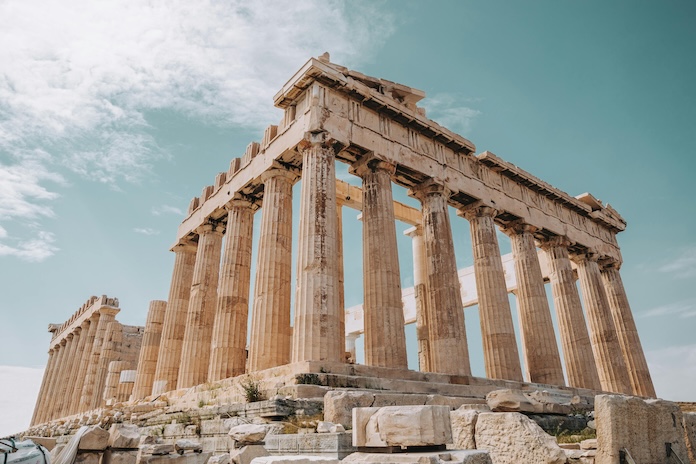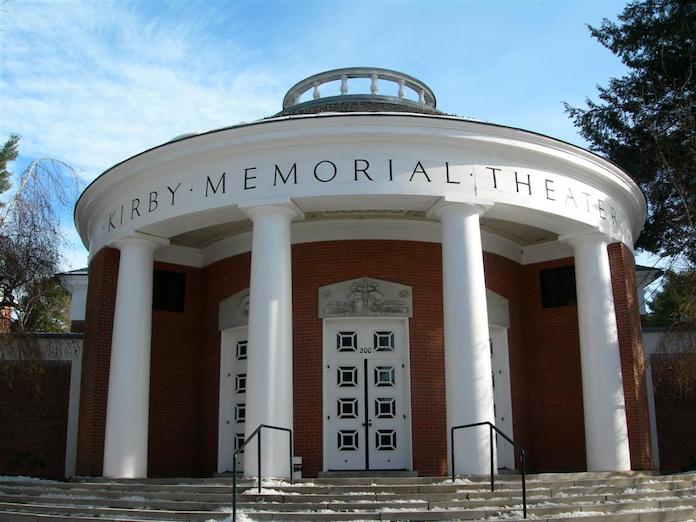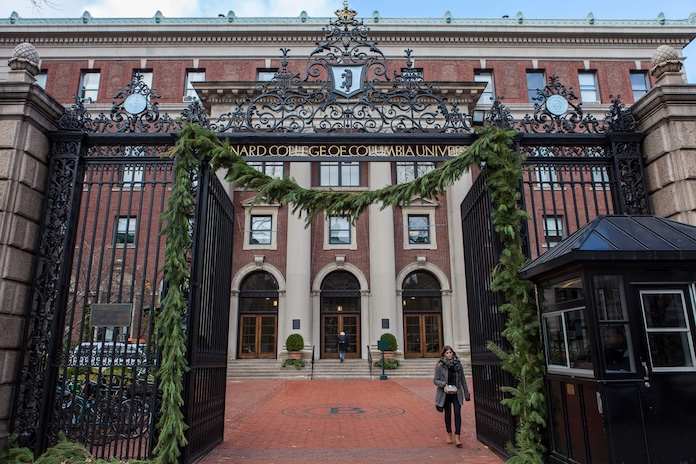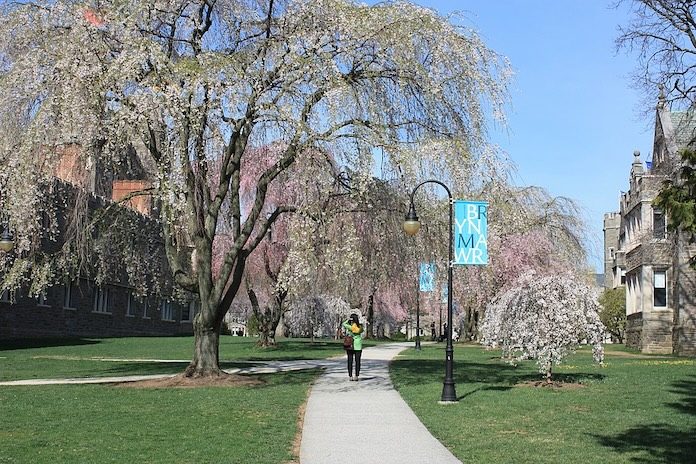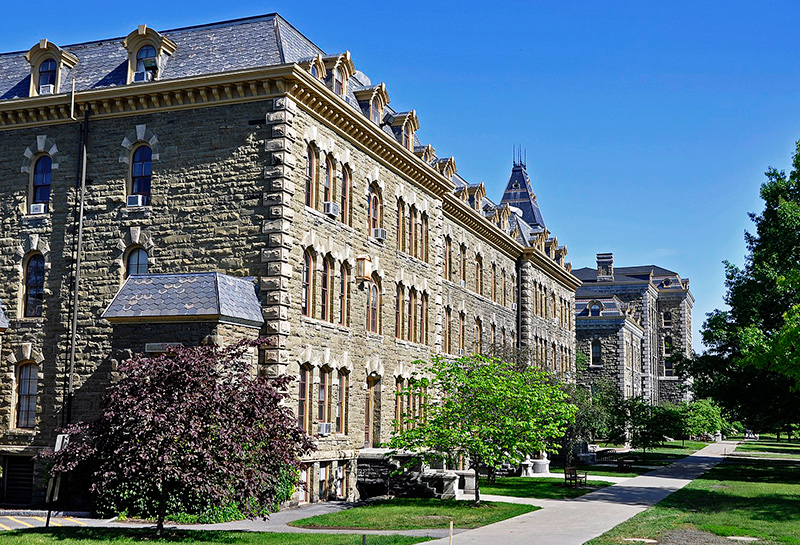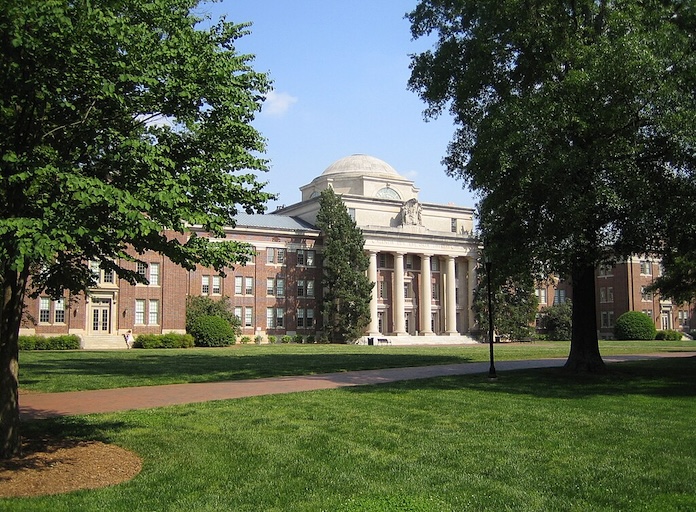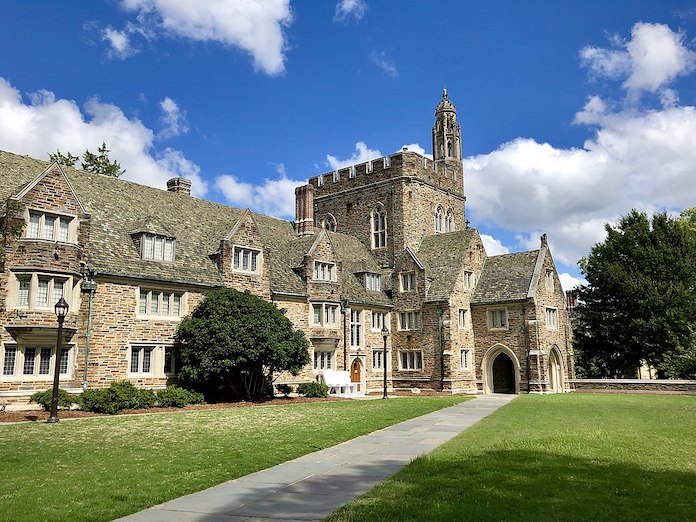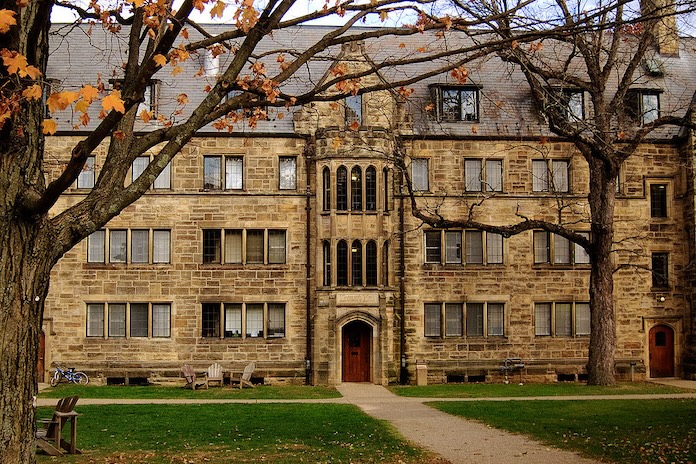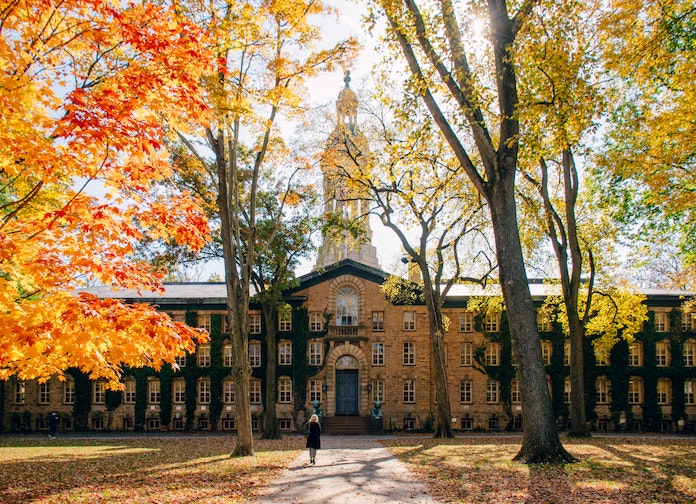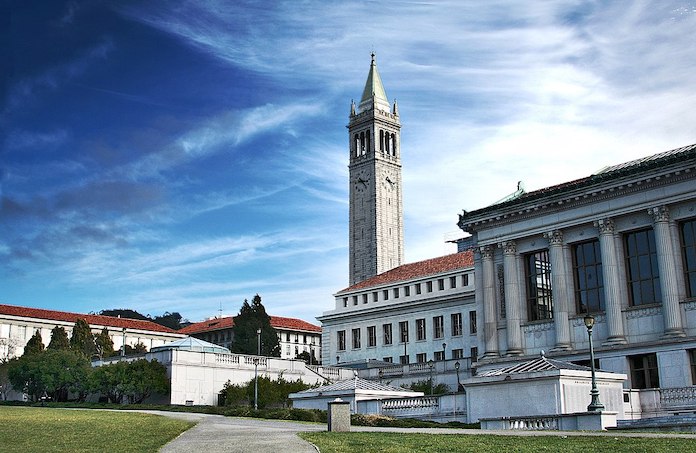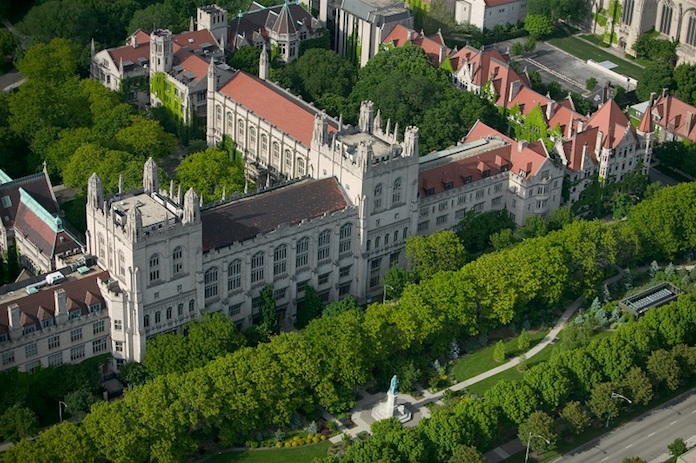Have you memorized every word of The Gladiator? Are you fascinated by Greek mythology? Do you dream of summer excavations in Italy or Greece? As a Classics major, you will have the opportunity to dive into a rigorous study of the ancient Mediterranean world through language, literature, art, and archaeology. Classics is a rich, interdisciplinary field that allows students to investigate the intersection of history, religion, art, philosophy, and theater, in addition to Latin and/or Greek.
It’s also not just for future professors or archaeologists. According to the Association of American Medical Colleges, students who major or double-major in Classics have a better success rate getting into medical school than students who study biology, microbiology, and other branches of science alone.

College Private Counseling
Develop an organized and effective application strategy that leverages your academic and extracurricular experience to stand out.
STRONG PROGRAMS IN CLASSICS
To learn more about strong academic programs in Classics (both Classical Languages and more interdisciplinary Classical Studies majors), check out these 10 schools:
Amherst offers four majors within the Classical Civilization program: Greek, Latin, Classics, and Classical Civilization. Students may choose to specialize in either Ancient Rome or Ancient Greece through coursework in one of the primary languages, in addition to a core curriculum. Amherst’s Holloway Classics Library is a great resource during late night study sessions and includes a complete collection of the Oxford Classical Texts, as well as dictionaries, lexica, grammatical aids, and other key sources. Classics majors can take advantage of the Mead Art Museum’s collection of ancient Roman and Greek coins on campus or join the Classics Club, which hosts movie nights and casual opportunities to learn more about study abroad programs.
Barnard’s Department of Classics and Ancient Studies offers majors in Greek, Latin, Classics, and Ancient Studies as well as minors in Classics, Ancient Studies, and Modern Greek. The major in Ancient Studies is unlike programs elsewhere due to its more comprehensive scope: the inclusion of the ancient Mediterranean and the Ancient Near East, in addition to Rome and Athens. Once students select their geographic specialty, they’re encouraged to study abroad in Greece, Rome, Egypt, or the Middle East. They may also take advantage of internship opportunities at museums in New York City with extensive ancient art collections, such as the Metropolitan Museum of Art. Courses include introductory lectures like “Classical Mythology” and more specialized seminars such as “Queer Classics: Desire, Embodiment, Backwards Glances.” Students can also apply to gain archaeological excavation experience by taking part in excavations at Hadrian’s Villa in Italy alongside Barnard and Columbia classmates. Outside of class, Barnard students can take Greek and Latin sight translation exams to win cash prizes.
Bryn Mawr’s department of Greek, Latin, and Classical Studies offers four different tracks for undergraduates: Classical Culture and Society (CCAS), Classical Language (CLAN), Greek (GREK), and Latin (LATN). Each track has a different set of requirements, but students can expect to take courses in the ancient languages and in translation. Courses include “Plato and Thucydides,” “The Roman Empire,” and “Interpreting Mythology.” The Classics department also runs a weekly Classics Colloquium—an opportunity to have tea and conversation and hear lectures from scholars from other institutions as well as Bryn Mawr faculty and graduate students. Additionally, the Bryn Mawr Classical Review, the second-oldest online scholarly journal in the humanities, publishes open-access, peer-reviewed reviews of scholarly work in classical studies and archaeology.
The Department of Classics at Cornell offers four major tracts: Latin, Greek, Classics (combined Latin and Greek emphases), and Classical Civilization. Many Classics students choose to pursue language study in Greece and Rome or archaeological fieldwork throughout the Mediterranean region with Cornell’s Aegean Dendrochronology Project or other expeditions. Cornell’s course offerings go beyond standard language or Classical history surveys and include topics like “Climate, Archaeology and History.” Students in the department are also encouraged to supplement their requirements with courses in History, History of Art, Linguistics, Philosophy, and the Archaeology Program. Each summer, travel fellowships support juniors who want to study classical cultures of the Near East, Greece, Rome, and Latinate medieval Europe.
At Davidson, Classics students may choose between two different courses of study: the Classical Language and Literature Major or the Classical Studies Major and Minor. For students who don’t have a language background in Latin or Greek, the Classical Studies track offers courses mostly taught in English and an interdisciplinary focus that includes courses in the philosophy, political science, and religion departments. The field of Classics also includes Classical reception (how people have reacted to Classical literature, myth, and history). Davidson students frequently contribute to the Contrada Agnese Project (CAP) in Morgantina, Sicily to gain research and excavation experience. On campus, Davidson students are currently working with Prof. Cheshire on the Ibis Project, a fresh text, translation, and commentary on Ovid’s literary curse poem Ibis. Students may also work with faculty members on independent study courses or write honors theses on the topic of their choice.
At Duke, students with an interest in Classics may pursue a Bachelor of Arts in either Classical Civilization or Classical Languages within the larger Department of Classical Studies. Duke also offers a unique Interdepartmental Major: Ancient Religion and Society for students interested in the ways religion shaped history, society, and thought in the ancient Mediterranean and who are curious about the intersection of Greco-Roman religious cults with Judaism, Christianity, and Islam. Students may also opt to pursue a minor in Greek, Latin, Classical Civilization, or Classical Archaeology. Courses include everything from “Ancient Spain and Portugal” to “Seven Wonders: monuments and Cultures of the Ancient Mediterranean.” Unlike many schools, where a culminating senior experience (like a thesis or project) is optional, at Duke, each Classical Studies major is required to prepare senior dossier. Classical Languages majors participate in a sight translation competition, and Classical Civilizations majors participate in a classical knowledge competition. Finally, the Classics Collegium fosters community on campus for those interested in ancient history, classical languages, archaeology, etc.
Classics courses at Kenyon emphasize the discipline’s interdisciplinary major and focus on everything from mythology to Greek and Roman history, archaeology, and literature in translation. Students should expect to study not just Latin and Greek but also art and architecture, history, political science, philosophy, religion, drama, linguistics and modern literatures. Students may also pursue individual study in Sanskrit and all classics majors must complete the senior capstone, in addition to sight examinations and the senior seminar. Prospective students might be interested in listening to the podcast Looted, which is hosted by Kenyon Professor Zoë Kontes and examines the stories behind illicit antiquities.
If you want to conduct original scholarly research while studying Classics, Princeton is the place for you. Princeton’s Classics department offers two tracks: the Classical Studies program, where students can study the history, literature, and culture of the ancient Mediterranean and the Ancient History program, which explores the history of ancient Greece and Rome as well as their relationships cultures of the Near East, Europe, and Africa. Princeton’s department also offers Certificates for non-majors in Greek Language and Culture and Roman Language and Culture, which is a great opportunity for those with a secondary interest in Classics. Junior year, each student writes a research paper under the direction of a faculty advisor on the topic of their choosing then, at the end of junior year, concentrators propose a provisional thesis topic, which they then write senior year. Students who want to study abroad, either with a Princeton seminar or during the summer, can take advantage of the Princeton Athens Center for Research and Hellenic Studies, located in the Pangrati neighborhood of Athens.
In January of 2020, the faculty of Classics at Berkeley voted to change the name of the department to the Department of Ancient Greek & Roman Studies (AGRS). Faculty teach larger lecture classes such as “Introduction to Greek Civilization” and more intimate upper-division classes such as “The History of Hell.” The department offers four majors: Ancient Greek & Roman Studies, Greek and Latin (students gain competence in both ancient languages), Greek, and Latin. For students who want to study abroad and gain field research experience, Berkeley’s world-renowned Nemea Center for Classical Archaeology facilitates internships during the year and hosts a Field School in Greece over the summer. There are also opportunities for individual research projects and digital archive work back on campus, in addition to the research projects in Nemea. The Center for the Tetubnis Papyri, housed in the Bancroft Library, is the largest collection of texts on papyrus in the Americas and a unique object of study for majors.
The major in Classical Studies at UChicago offers three different variants: the Greek and Roman Cultures Variant (art and archeology, texts in transition), the Language Intensive Variant (focus on reading texts in the original language), and the Language and Literature Variant (combines reading Greek and Latin texts with art, archaeology, philosophy, religion, etc.) UChciago prides itself on helping undergraduates produce high-level scholarly research. Along these lines, majors in their third year may submit a short statement proposing a topic and primary source material for their BA paper in order to achieve Honors. The University of Chicago is also unique in its extensive selection of undergraduate prizes and grants (often in the $5000 range) to enhance students’ study of classical languages, literature, or civilization through travel to Greece, Italy, or another country with classical materials.

AP Exam Tutoring
Our tutors offer customized tutoring designed to fit the needs of each student.
CLASSICS: EXPERT GUIDANCE
As you create your application strategy, it’s important to understand a school’s academic offerings so you can visualize yourself as a member of a specific department/major. Contact us today and learn how we can help you on your admissions journey through private counseling, test prep, or essay guidance. Future Classicists might be particularly interested in one-on-one tutoring for the AP Latin exam.
If you enjoyed this post, follow us on Instagram @toptieradmissions for more tips and subscribe to our blog for expert insights & college admissions news.
- Penn’s Record-Breaking Admissions Cycle - April 5, 2024
- Strong Programs in Classics - April 3, 2024
- UVA: Regular Decision Acceptance Rate - March 29, 2024

